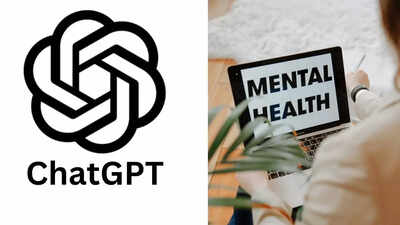ChatGPT gets mental health upgrade as OpenAI adds ‘take a break’ prompts |

OpenAI is rolling out a set of new mental health-focused features for ChatGPT, including gentle reminders for users to take breaks during extended conversations. The move comes as the company faces scrutiny over reports that the chatbot may have unintentionally fueled delusions or emotional dependency among vulnerable users. With nearly 700 million weekly users, ChatGPT’s growing role in people’s lives has raised questions about responsible use, especially in emotionally sensitive contexts. OpenAI’s latest update aims to promote healthier interaction habits and improve the AI’s ability to recognize signs of distress.
OpenAI responds to mental health concerns
Following multiple reports that ChatGPT may have worsened emotional distress or reinforced harmful beliefs in users, OpenAI has taken steps to strengthen its mental health safeguards. The company acknowledged that previous versions of ChatGPT, particularly the GPT-4o model, sometimes failed to recognize signs of delusion or dependency. In April, an overly agreeable update was rolled back after users and critics warned it could enable risky or manipulative interactions. OpenAI now says it’s working with mental health experts and advisory groups to implement better detection and response mechanisms.
ChatGPT will now suggest breaks during long sessions
A key part of the update includes break reminders during prolonged conversations. Users chatting with ChatGPT for an extended period will now see a prompt saying, “You’ve been chatting a while — is this a good time for a break?” with options to either “keep chatting” or end the session. This feature mirrors similar interventions used by platforms like YouTube, TikTok, and Xbox, designed to reduce excessive screen time and encourage mindful usage.
Less decisive answers in high-stakes emotional scenarios
Another upcoming change will make ChatGPT less likely to give firm answers in high-stakes or emotionally sensitive situations, such as relationship decisions. Instead of providing a direct opinion, the chatbot will now guide users through various perspectives or choices, reinforcing the idea that critical decisions should not be offloaded to an AI system. This marks a shift toward a more cautious and supportive conversational style.
A broader push for safer AI interactions
The new mental health features are part of OpenAI’s broader strategy to ensure that ChatGPT remains a safe, helpful, and responsible tool—especially for users dealing with stress, anxiety, or emotional vulnerability. As AI continues to become more integrated into everyday life, OpenAI says it is committed to continuously refining ChatGPT’s behavior to meet higher standards of safety, empathy, and human well-being.




